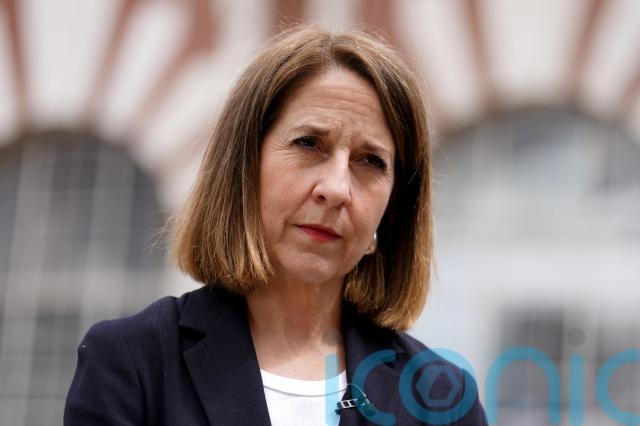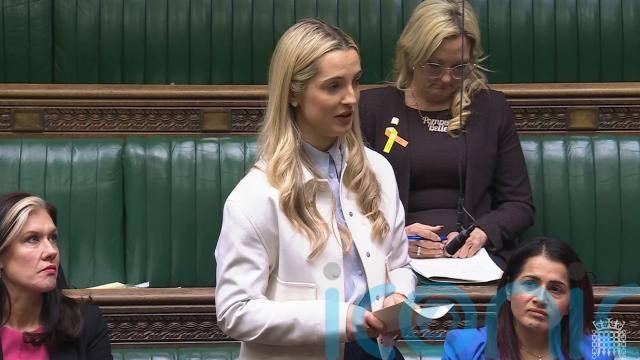
The head of the internet and communications watchdog has said she limits her own use of social media amid concerns over abuse, as she defended Ofcom’s role in ensuring safety online.
The regulator has urged technology firms to “step up” in their efforts to tackle trolling and toxic online abuse in new guidance – but some organisations working to protect women and girls have complained it might not work unless it is made mandatory.
Ofcom said women in sport, politics and other public arenas are facing “significant and widespread abuse online every day” and its boss, Dame Melanie Dawes, has admitted she limits her personal use of social media for that reason.
In guidance published on Tuesday, the regulator set out the ways a range of providers including social media platforms, dating, gaming and pornography sites can help improve the status quo, urging them to take more responsibility for protecting users online.
The guidance, which Ofcom said goes beyond legal duties under the Online Safety Act, includes encouraging firms to bring in prompts asking users to reconsider before posting harmful content; imposing “timeouts” for users who repeatedly target victims; limiting the number of comments or posts a person can make on one account to help prevent mass posting of abuse in so-called pile-ons; and allowing users to quickly block or mute multiple accounts at once.
It also recommends introducing more sophisticated tools for users to make it easier for victims to report abuse as well as simplifying the ability to set accounts to private.
Another recommendation is for firms to use automated technology known as “hash-matching” to detect and remove non-consensual intimate images.
Technology Secretary Liz Kendall said she welcomed the Ofcom guidance and added: “Now it’s time for platforms to take responsibility and use every lever to protect women and girls online.”
But as the guidance is not enforceable, a number of organisations working to protect women and girls online have said there is too much reliance on tech firms choosing to implement it.
Internet Matters, domestic abuse charity Refuge and children’s charity Plan International UK have all called on the Government to make the guidance mandatory.
Refuge said it is “a welcome step towards addressing misogyny and domestic abuse in digital spaces, but meaningful protection for women and girls will depend on tech companies fully engaging with this voluntary guidance and putting it into practice”.
Plan International UK said the guidance must become a “legally binding code”, adding: “Without the power to enforce penalties on companies that fail to act, Ofcom is limited to naming and shaming platforms — and girls deserve more than that”.
Echoing this, online safety organisation Internet Matters said platforms should be required to implement the measures outlined in the guidance “rather than making it a choice”.
Dame Melanie has insisted Ofcom is “making progress” around online safety, highlighting the introduction of age checks across the pornography industry this summer as a “huge step forward that no other country has achieved”.
“Ofcom is getting on with the job,” she told BBC Breakfast.

“Things are changing out there. I just don’t agree that we’re not making progress. I have more hope than that to be honest.”
She acknowledged it is “an industry that’s not been regulated for 20 years” and told of her own personal experiences.
She told BBC Breakfast: “I limit my use of social media because I know that in the position I’m in I would get a lot of abuse, and I’ve had that in the past.
“I think there are many women who feel the same way.”
But she insisted Parliament has been more ambitious than other countries when passing the Online Safety Act, adding “and in the regulator, at Ofcom, you have an organisation that is determined to see it through, and is acting”.
Ofcom has said it will publish a report in summer 2027, setting out progress companies have made.

But it added: “If their action falls short, we will consider making formal recommendations to Government on where the Online Safety Act may need to be strengthened.”
Ms Kendall said: “Tech companies have the ability and the technical tools to block and delete online misogyny. If they fail to act, they’re not just bystanders, they’re complicit in creating spaces where sexism festers and a society where abuse against women and girls becomes normalised.”
Earlier this year, Sport England chairman Chris Boardman wrote to Ofcom to raise concerns over the online abuse directed against the England Women’s team during Euro 2025.
Meanwhile, Parliament’s youngest female MP Rosie Wrighting has previously spoken of several insults directed at her, such as “Barbie” and “stupid girl”, and said there have been “many great women” who have not gone into politics because of online abuse and safety concerns.
Subscribe or register today to discover more from DonegalLive.ie
Buy the e-paper of the Donegal Democrat, Donegal People's Press, Donegal Post and Inish Times here for instant access to Donegal's premier news titles.
Keep up with the latest news from Donegal with our daily newsletter featuring the most important stories of the day delivered to your inbox every evening at 5pm.